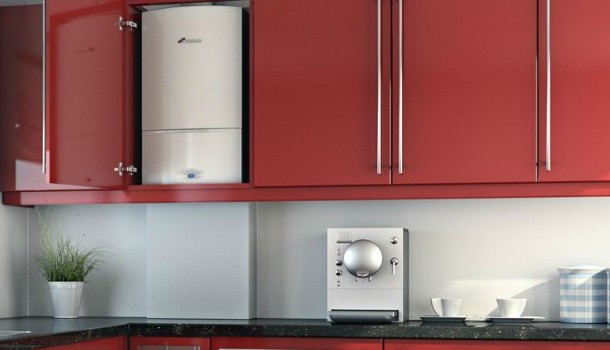
UPDATE: As of 30 March 2016, the government has stopped funding and the Green Deal Home Improvement Fund is closed to new applications. You can read about it here.
Can I get a grant for a boiler replacement?
Can I still get a grant for a free boiler?
For many years, the Warm Front scheme helped disadvantaged and vulnerable members of society get a new boiler and up to that point it was free. The scheme worked really well, but because it was funded directly by the government, it was deemed not to be cost effective and was subsequently scrapped in favour of ECO and the Green Deal over a year ago.
- So have we seen the death of completely free boilers under ECO?
- When companies are offering a ‘free’ deal, is the boiler really free?
- Are companies offering grants for boilers and asking for a contribution actually con artists?
We answer these questions below, and show you how you could benefit from the new ECO / Green Deal scheme.
Is ECO the new Warm Front?
The Energy Company Obligation, or ECO as it is more commonly known, is a legal obligation placed on the larger energy suppliers (British Gas, Npower, E.ON, SSE, etc.) to deliver energy efficiency measures to domestic energy users. To you and me this means they are obliged to pay money that will help provide grants towards boilers and loft and cavity wall insulation.
One stream of the ECO funding is known as HHCRO (Home Heating Cost Reduction Obligation) and is specifically set aside to help vulnerable people get their old boilers replaced.
When the scheme launched in early 2013, there was sufficient funding to cover the entire cost of the boiler install for the majority of homes, hence companies were offering ‘free boiler installs under ECO’.
Since the beginning of 2014, the market has changed and installers are getting less and less per installation, which means that in most cases they don’t have enough funding to help pay for the boiler outright and therefore customers are being asked to contribute towards the cost of installation.
How do they calculate the grant funding for new boilers under ECO?
To explain further, the grant money an installer receives is based on the energy savings made as a result of getting a new boiler installed. This not only depends on how old the boiler is that is due to be replaced, but the size of the property and the build type.
For example, installing a new boiler in a large 4 bedroom property will result in far higher energy savings than a small 1 bedroom flat. This means there is a preference to install boilers in larger properties because the installers will get more funding and therefore they don’t have to deal with the difficult situation of asking the customer to contribute.
This is why we have seen some customers who live in smaller properties having their ‘free boiler’ installation date announced then cancelled, without any explanation of why they are no longer getting it – the installers have simply moved onto the more profitable jobs.
People don’t understand why they get the installation refused whereas a friend or neighbour in another part of town has had the installation absolutely free.
This has made a lot of people angry and disappointed and we have certainly spoken to people who have concluded that the ECO free boiler scheme is nothing more than a scam!
Do we think the process has been unfair up to now? Absolutely!
Do we think installers and companies promising free ECO boilers should be more upfront with customers how this process works? Absolutely right!
>>> The cost of heating your home with gas versus electricity <<<
The changing nature of ECO grant funding
The good news is that the government has extended (Dec 2013 announcement) the bit of ECO that guarantees a grant for boilers for the most vulnerable members of society right through until 2017.
The bad news is that the grant in most cases will not cover the full install cost of the boiler; it will however make a significant dent in the amount you need to pay.
Perhaps more worryingly, vulnerable customers will still be attached to the whims of the energy companies and these rather complex delivery targets that too few understand.
There are certain target figures they need to achieve, and when these targets are reached, the funding will cease or rapidly reduce. Where will this leave the millions of vulnerable customers this scheme is there to help?
If you look at the graph below from OFGEM (the industry regulator), you will see that in November 2013, 73% of the funding for boilers had been used up, and by February 2014, it was extremely difficult for a new customer to get a boiler under the scheme, simply because the money available was, for all intents and purposes, gone.
Bear in mind that the winter just gone was one of mildest winters in a long time – if we have a really cold winter next year, there could be some serious repercussions for those unable to afford a new boiler.
How does ECO boiler grant funding work today?
We are now seeing the environment for these grants changing on a weekly basis.
For instance, some installers are able to get something called a ‘fixed rate’, whereby they receive the same funding for any type of property (no matter the size) as long as the average savings they submit for a group of properties adds up to a certain target figure.

Other installers (as before) allocate the grant based on the saving made by each property. This means that some properties will get completely free boilers, while others will have to contribute a lot of money or be refused the job.
The first method can be very complicated and in the end it may still exclude some people. For example, if the job is complicated (i.e. the boiler needs to be moved) then the costs will add-up and the grant will simply not cover the installation costs.
The second method as mentioned before is unfair and many with smaller properties lose out because they will receive very little funding.
The future of ECO – combining with the Green Deal?
[Update: the Green Deal scheme has now finished.]
The Green Deal, which is the Government’s flagship energy efficiency scheme and available to all, is designed to reduce the up-front cost of measures like new boilers by providing finance at competitive rates that can be paid back through the electricity bill with the savings you make from the measure.
It was actually always intended to work with standalone or side-by-side the ECO grant scheme (to those that are eligible), however recent evidence suggests a lot more work needs to still be done here.
For example, in a scenario where the customer who can get the boiler grant is being asked to pay £1,000 up front towards their new boiler because their ECO grant does not cover the cost, it may be very attractive.
The cost of the job is £2,200 for a boiler install where ECO will pay for a hypothetical £1,200 as a grant. The customer cannot afford £1,000, but because the savings made will be substantial, the Green Deal could pay for the difference – assuming the customer is ok to take out the Green Deal Finance loan, paying it back through their electricity bills.
In this ideal scenario the customer can get a relatively low cost boiler install that they would not have been able to afford using just one of the schemes.
Company websites offering free boilers – is this a scam?
In a landscape where the funding tends to be stretched with more and more middlemen in the market distributing the funding, it suggests the customer will get less and less at the end of it. Our view is that the days of grants covering the cost of completely free boilers are probably gone.
The customer needs to be very careful as there are companies out there that ask for money upfront and promise the earth and don’t respond to calls after this has happened.
To avoid this, ask the operative some more information. For example the customer will need to be assessed first by a qualified Energy Assessor. They will walk around the property taking various measurements and produce an Energy Performance Certificate (EPC).
The assessor will take photographs of the property’s walls, the boiler, windows, loft insulation to work out how much cost the property could save with a new boiler. They will also ask for proof of tenure and take copies of the qualifying benefits. Don’t worry – this is quite normal.
An assessor may ask for a call out charge, which should be the cost of producing an EPC but no more. This is only to cover their time to make sure you qualify. But this should be no more than £50 – £60. Not £100s, as some companies have been found charging!
The installer of the boilers will have to be a PAS2030 qualified Green Deal Installer – licenced to carry out installations on behalf of this Government backed scheme. Make sure you always ask to see the ID of any of these people before inviting them into your property.














I would like more info regarding a boiler grant as have been messed around by companies for nearly 2yrs.
Mrs Khan – thanks for your message. The ECO scheme is currently funding a very limited number of free boiler installs due to a reduction in the amount of funding left – for example British Gas has now suspended all new queries till March 2015. Speaking from our day-to-day experience most of our queries we are getting at the moment are for the £1600 grant available from the Green Deal Home Improvement Fund (GDHIF) for a combi boiler with the flue gas recovery system. The GDHIF launched earlier this month and is proving quite a success.
In cases where there is ECO money left it will be difficult to expect a 100% free boiler and the company providing the service will ask for permission to look at alternatives means to fund it. The alternative could be utilising ECO with Green Deal Finance or with Alternative finance.
I saw this article from your newsletter. Is the new Green Deal grant also available with ECO? We are on low income and in receipt of benefits. How much grant can I get?
Ladies/ gents, I go onto the universal credit from tomorrow, do you kmow if Im eligible for a grant for a replacement boiler? The current system is a back boiler but i would like to replace with a combi wall mounted. Any help much appreciated. I live in Acton, west London.
Awesome blog! Thanks for providing great information here. It would be so useful for free boilers and free cavity wall insulation. The free /subsidised boiler scheme I expect is also available for landlords.
hi,i live in the torbay area of devon and i am looking to get funding for a new combi boiler
Do u know anyone near cardiff that does this, a company has foned me saying i can have a free boiler but i have to pay £400 upfront for an assesor to come id pay this but dont know if they r legitmate n have no way of finding out, im on working tax n my son is on pip but im not entitled to one according to the gov site, the company say theg can do it as my boiler is over 7 yrs old
i hve on boiler in house
Please advise if I am eligible for s grant towards a new com I boiler. It’s to replace a 1950s back boiler. Email al_martin03@yahoo.co.uk
Thanks
Yes you will be eligigible if you are on certain benefits and it will also depend on the property type and how many bedrooms it has?
npower came out to assess my boiler and said it was fine so no replacement, even tho i have had to consistently have it repaired the last few years…after another leak a totally new engineer independant came out and said all the problems with my boiler were because the heater was placed to high for the flue and condensation was building up and causing all the problems and damage…..warm fronts grant originally put the boiler in for my parents over ten years ago,..and they came to service it when it first had problems but said nothing wrong…then npowers assessment for a free boier said boiler was fine…laughable… dont trust them…
Hello
I applied for a free boiler from one of the energy companies. They have been and done all the surveys and they said I qualify.
I asked about replacing our Gravity fed boilers with a combi boiler as we hardly use the water in the tank (electric shower). They said no, it has to be a like for like replacement. Is this true? I was under the belief that it was OK as long as I paid the difference.
How do I find out more about this?
Hi Angela, firstly you have done well finding anyone who will offer you a new free boiler. The funding has been cut, so I would move very quickly to get this done. Likewise what tends to happen is the install company will have got hundreds / thousands of boilers in a deal – hence not wanting to change what is already there (heat only to combi) – they like to be in and out very quickly and swapping to a combi boiler will take far more time.
Based on the fact very few are offering free boilers now, I would take the offer while you can – your bargaining power isn’t great I’m afraid!!
Be warned: We are on benefits, we qualify,our boiler qualifys, we have contacted 3 Energy Providers firms who offer free boilders inc B.G. In the last 3 years we have had 3 surveyors visits, they promise action that never materialises, we inform us we will get placed on a waiting list and there will be a long delay. We wait, and wait, and like just now when I phoned British Gas – who we are waiting for to install the alleged new boiler – I was told “Our application is on file but since it was made in February 2015, 9 months ago, its now dormant and we need to apply again.”, This is a Public Relations gimmick, they can tell the Parliament Watchdogs , “O.K, we agree we are overcharging the public £5 billion pounds a year on our gas prices, but don’t scream at us because we have a heart and are giving them free insulation and free boilders, but being ultra careful not to reveal over 50-60% of applicants are not going to get what they offer, and they will make knowlingly up excuses or blame the Eco rules THEY WROTE THEMSELVES to explain the long delay, or non deliveries, in a best possible Public.Relations light for them. ” On another www-site they have over 1000 British Gas complaints, with possibly 250 000 unreported out there? Written/posted 25-11-2015,
Ive been working on this shceme for nearly three years now and i can understand why customers are getting anoid. The funding has dropped over 60%. To cover the cost of the boiler is difficult in some cases which is why they dont come back to install once carrying out the survey.
At Eco GEC Ltd, Inform our customers of the process before we book a survey so not to waste anyones time. We have methods which we use from initial contact to determine whether a property is viable for the shceme.
Funding is so low we cannot install flats or 50% of cavity poperties with unfillied cavites or 90% of properties with cavities filled or mid terrace solid wall properties with an area less than 90m2.
Properties are more likely to qualify if if they are:
Of solid brick construction
No external insulation
semi or detached
over 80m2
Loft conversion
2/3 stories
IT CAN BE FUSTARTING AS WE FIND IT HARD TO HELP TO PEOPLE WHO NEED BOILERS IN SMALLER CAVITY PROPERTIES. FOR PENSIONERS IN NOTTINGHAM WE HAVE AN ORGANISATION THAT CAN HELP COVER THE CONTRIBUTION. WE NEED THE SAME FOR TAX CREDITS
Free boilers for the hard working people not on benefits???
Why can’t people not on benefits get a free or help making their home more efficient? Or at least tax breaks for buying our own and not paying for other people to benefit from our hard work making a living for ourselves
I too have been working under different Government initiatives over the last 10 years (CESP, CERO, CSCO, HHCRO).
I fully understand peoples frustration when the funding allocated isn’t enough to cover the full cost of the work. I personally find it bewildering. Make no mistake, the individuals missing out on funding for energy saving measures is NOT restricted to ”hard working people not on benefits” people who qualify for funding are also missing out!
We get paid on what we save people in Carbon emissions. Typically but not wholly, if a property is particularly small or energy efficient ie: well insulated, double glazed etc it’s unlikely the funding allocated will cover full cost of the work. Approx 40% of our installations require a contribution of £150-£350. This is mainly because we’re 3 years into HHCRO and the bigger, more profitable properties were most likely targeted first.
It’s a shame (but no surprise) that the Government have given installation companies the incentive to target the bigger, more inefficient properties rather than those who perhaps need it the most ie: those considered to be in ‘fuel poverty’ or residing in area’s considered to be of ‘deprivation’
On another note. Funding is available under CSCO & CERO for those NOT in receipt of benefits but this funding is restricted to Room in Roof insulation, Cavity Wall & Loft insulation.
Although I would stand firmly that this is not a scam, I would do your due-diligence in asking:
Any contribution?
Which boiler is getting fitted? Ie Worcester, Ideal, Vaillant etc
How long is the work guaranteed for?
In addition to the above, I would avoid unknown makes of boiler systems. It may even pay in the long run to make a small contribution and have a Worcester fitted if the company proposes to fit a brand of boiler you haven’t heard off – only god knows exactly how many ideal isars that were installed under Warmfront grants that require yearly expense in repairs. I would almost guarantee that anyone who got one of these for free has probably paid for it twice in maintenance and repairs. (Please note – Ideal boilers are fantastic nowadays but the particular model (ISAR) mentioned above was an absolute bag of crap!
We qualified for a free boiler because my girlfriend is on disability benefit. It has made big help to us because the old boiler kept breaking down and it cost lots to run. I think this Government scheme is fantastic for helping people like us.
Thankyou. Had our boiler installed 3 days ago. It was completley free! The new boiler cost us nothing under the govnerment shceme. Thanks for your help!
Hi Petr, no problem! We enjoy it when people take our recommendations and get bits and pieces done to their homes! Hope your installers did a good job with the new boiler!
I think these free boiler schemes are important for people who can’t afford heating. The new boiler should use less gas so will be cheaper to run. Hope the government don’t cancel this too!
Thanks for your comment Iloverambo (I also love that film!) – anyway, I agree, these schemes are important. I think it is a basic right that vulnerable people can afford to heat their homes.
We qualify through our benefits, but cause boiler needs moving british gas r refusing to do it. It is disgusting. everyone should now what a sh*t company british gas are. Everyone where we live got one, it is unfair. Stupid cameron.